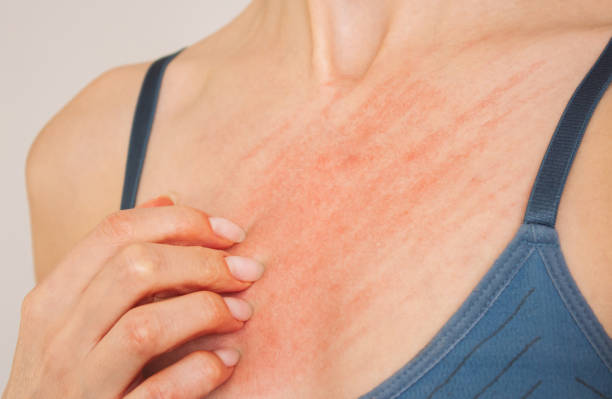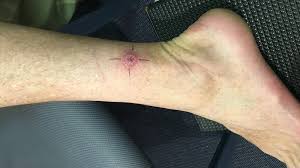Introduction:
Scabies, a highly contagious skin infestation caused by the Sarcoptes scabiei mite, can be a challenging condition to deal with. However, with the right approach, it’s possible to alleviate symptoms and prevent further spread. In this comprehensive guide, we’ll explore the ten best strategies for effectively managing and treating scabies. From medical treatments to home remedies, we’ve got you covered.

Understanding Scabies: Unraveling the Basics
Scabies is more than just a bothersome itch. Dive into the fundamentals of scabies, including its causes, symptoms, and transmission. Learn how scabies mites burrow into the skin, triggering an allergic reaction that leads to intense itching and skin irritation.
Diagnosis Demystified: How to Identify Scabies
Spotting scabies early is crucial for prompt treatment. Explore the various methods healthcare providers use to diagnose scabies, from visual inspections to skin scrapings. Understand the importance of seeking medical confirmation to ensure accurate diagnosis and appropriate treatment.
Conventional Treatments: Medications for Scabies
Delve into the world of conventional scabies treatments, including topical medications and oral medications. From permethrin cream to oral ivermectin, discover the effectiveness of these prescription treatments in killing scabies mites and relieving symptoms.
Natural Remedies: Harnessing the Power of Nature
Seeking natural alternatives to conventional treatments? Explore a variety of natural remedies that may help alleviate scabies symptoms, from tea tree oil and neem oil to sulfur creams and aloe vera. Learn how these remedies work and their potential benefits.
Household Cleaning Tips: Preventing Scabies Spread
Prevention is key when it comes to scabies. Explore practical tips for cleaning and disinfecting your home to prevent scabies mites from spreading to family members and household items. From washing bedding and clothing to vacuuming furniture, discover effective strategies for maintaining a scabies-free environment.
Personal Hygiene Practices: Keeping Scabies at Bay
Maintaining good personal hygiene is essential for preventing scabies infestations. Explore hygiene practices that can help reduce the risk of scabies transmission, including regular handwashing, avoiding close contact with infested individuals, and refraining from sharing personal items.

Treating Close Contacts: Breaking the Cycle of Transmission
When one family member is diagnosed with scabies, it’s important to treat close contacts to prevent reinfection. Learn why treating everyone in the household simultaneously is essential for breaking the cycle of transmission and preventing recurrent infestations.
Overcoming Treatment Challenges: Tips for Success
Successfully treating scabies may require patience and persistence. Explore common challenges encountered during scabies treatment, such as resistance to medications and persistent itching. Discover strategies for overcoming these challenges and achieving successful outcomes.
Post-Treatment Care: Nurturing Your Skin Back to Health
Even after scabies treatment, it’s important to care for your skin as it heals. Learn how to soothe itching and irritation, promote skin healing, and prevent secondary infections. Explore gentle skincare practices and moisturizing techniques for nurturing your skin back to health.
Seeking Professional Help: When to Consult a Healthcare Provider

While many cases of scabies can be managed at home, certain situations may warrant medical attention. Learn when to consult a healthcare provider for suspected scabies, persistent symptoms, or complications. Understand the importance of follow-up care and monitoring for treatment effectiveness.
After undergoing scabies treatment, it’s crucial to provide your skin with the care it needs to heal properly. While the medications prescribed by your healthcare provider work to eliminate scabies mites, your skin may still be recovering from the infestation. Here are some essential post-treatment care tips to help nurture your skin back to health:
Moisturize Regularly: Moisturizing your skin is essential for restoring its natural moisture barrier and preventing dryness. Opt for gentle, fragrance-free moisturizers that won’t irritate sensitive skin. Apply moisturizer liberally, especially after bathing, to lock in hydration.
Avoid Scratching: Although it can be tempting to scratch the itchiness associated with scabies, scratching can exacerbate skin irritation and lead to further complications such as secondary infections. Try to resist the urge to scratch, and instead, use cool compresses or anti-itch creams to soothe discomfort.
Practice Gentle Skincare: When caring for your skin post-treatment, opt for gentle skincare products that won’t irritate or inflame the skin. Avoid harsh soaps, exfoliants, and fragrances that can strip the skin of its natural oils and disrupt the healing process.
Monitor for Signs of Infection: Keep a close eye on your skin for any signs of infection, such as increased redness, swelling, warmth, or drainage from sores. If you notice any concerning symptoms, contact your healthcare provider promptly for further evaluation and treatment.
Protect Your Skin from Sun Exposure: While your skin is healing, it’s essential to protect it from excessive sun exposure, which can worsen irritation and delay healing. Wear protective clothing, such as long sleeves and wide-brimmed hats, and use sunscreen with a high SPF when outdoors.
Stay Hydrated: Drinking an adequate amount of water is crucial for maintaining skin health and promoting healing. Aim to drink at least eight glasses of water per day to stay hydrated and support your skin’s recovery process.
Seek Follow-Up Care: Schedule a follow-up appointment with your healthcare provider to ensure that your scabies treatment was successful and to address any lingering symptoms or concerns. Your provider may recommend additional steps for ongoing skin care or monitoring.
By following these post-treatment care tips, you can help nurture your skin back to health and minimize the risk of complications following scabies treatment. Remember to be patient and gentle with your skin as it heals, and don’t hesitate to reach out to your healthcare provider if you have any questions or concerns
Conclusion:
Combatting scabies requires a multifaceted approach that addresses both treatment and prevention. By understanding the fundamentals of scabies, identifying symptoms early, and implementing effective treatment strategies, you can effectively manage this common skin condition. Whether you opt for conventional medications or natural remedies, the key is to act promptly and diligently to eradicate scabies mites and alleviate symptoms.



